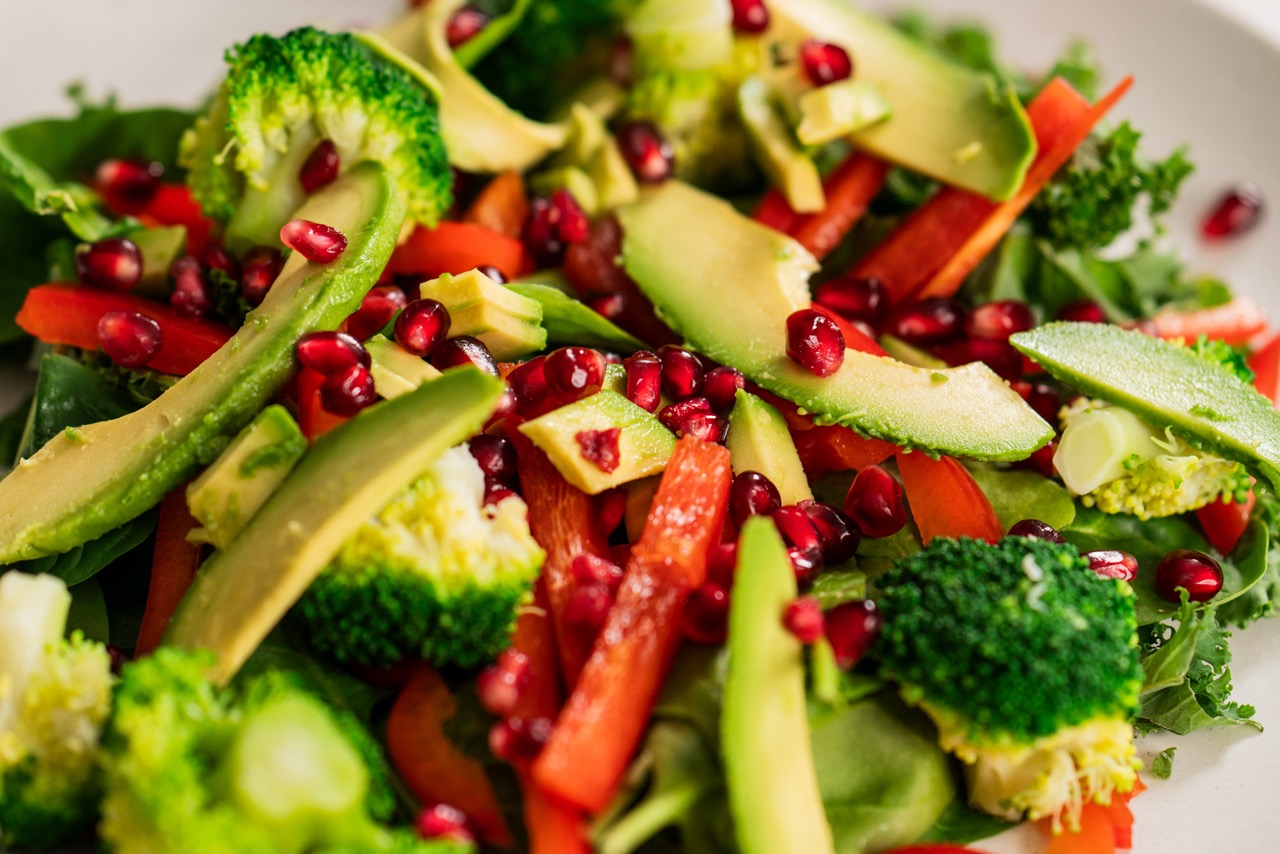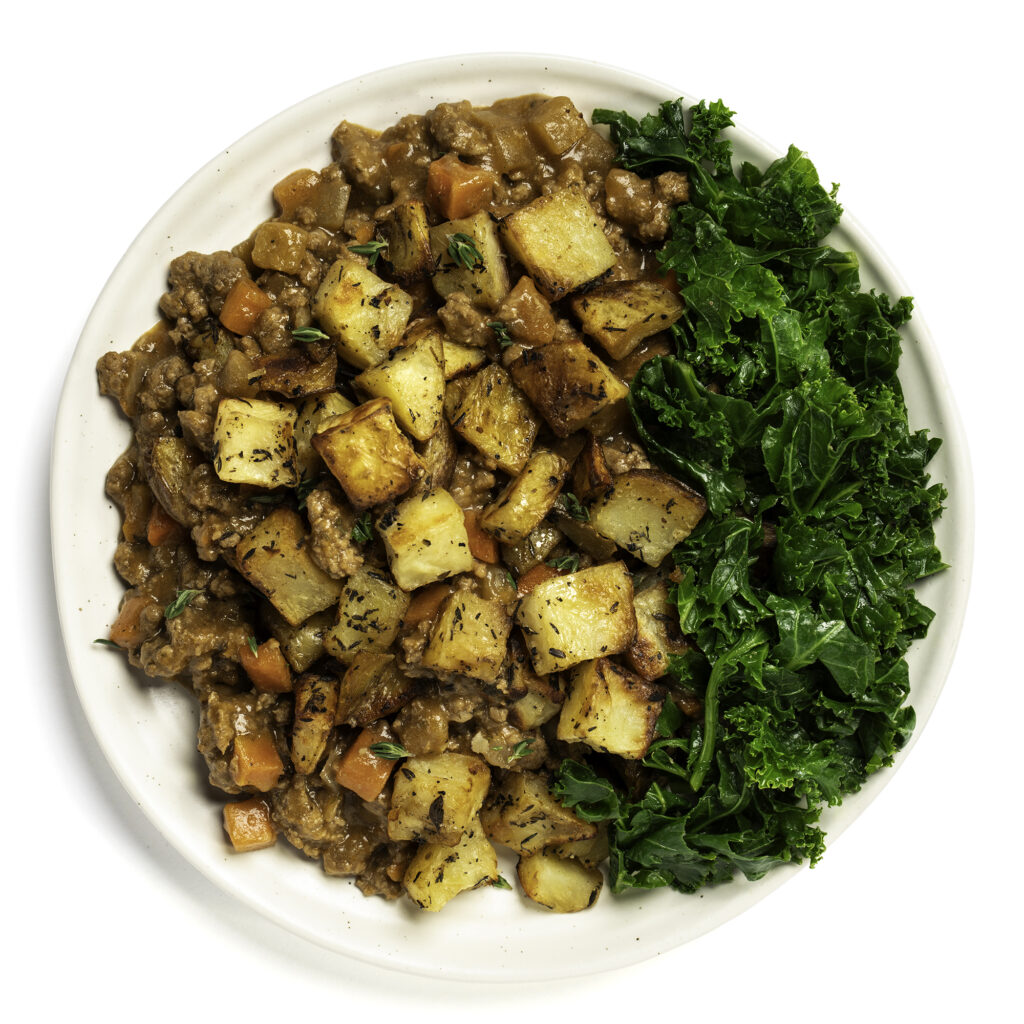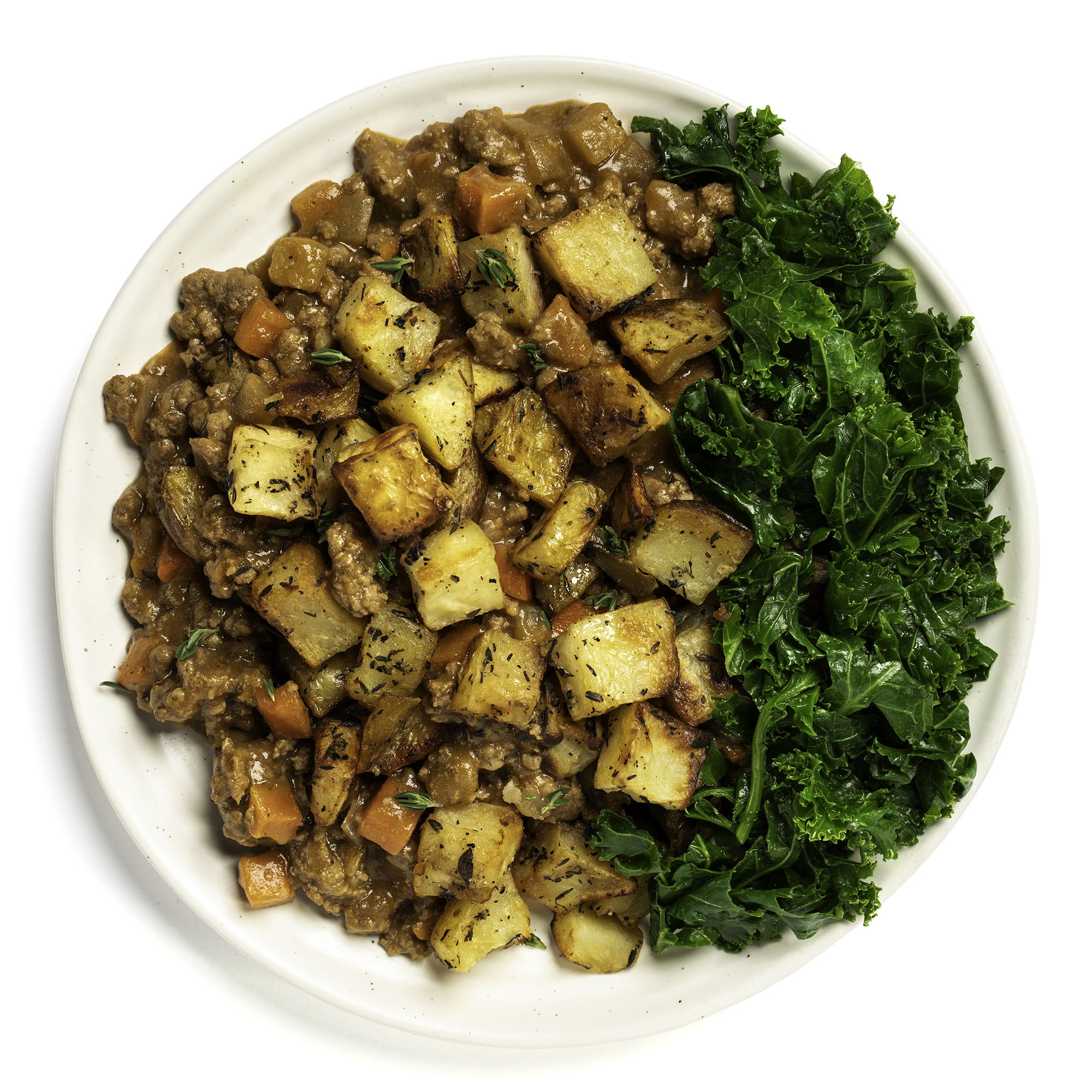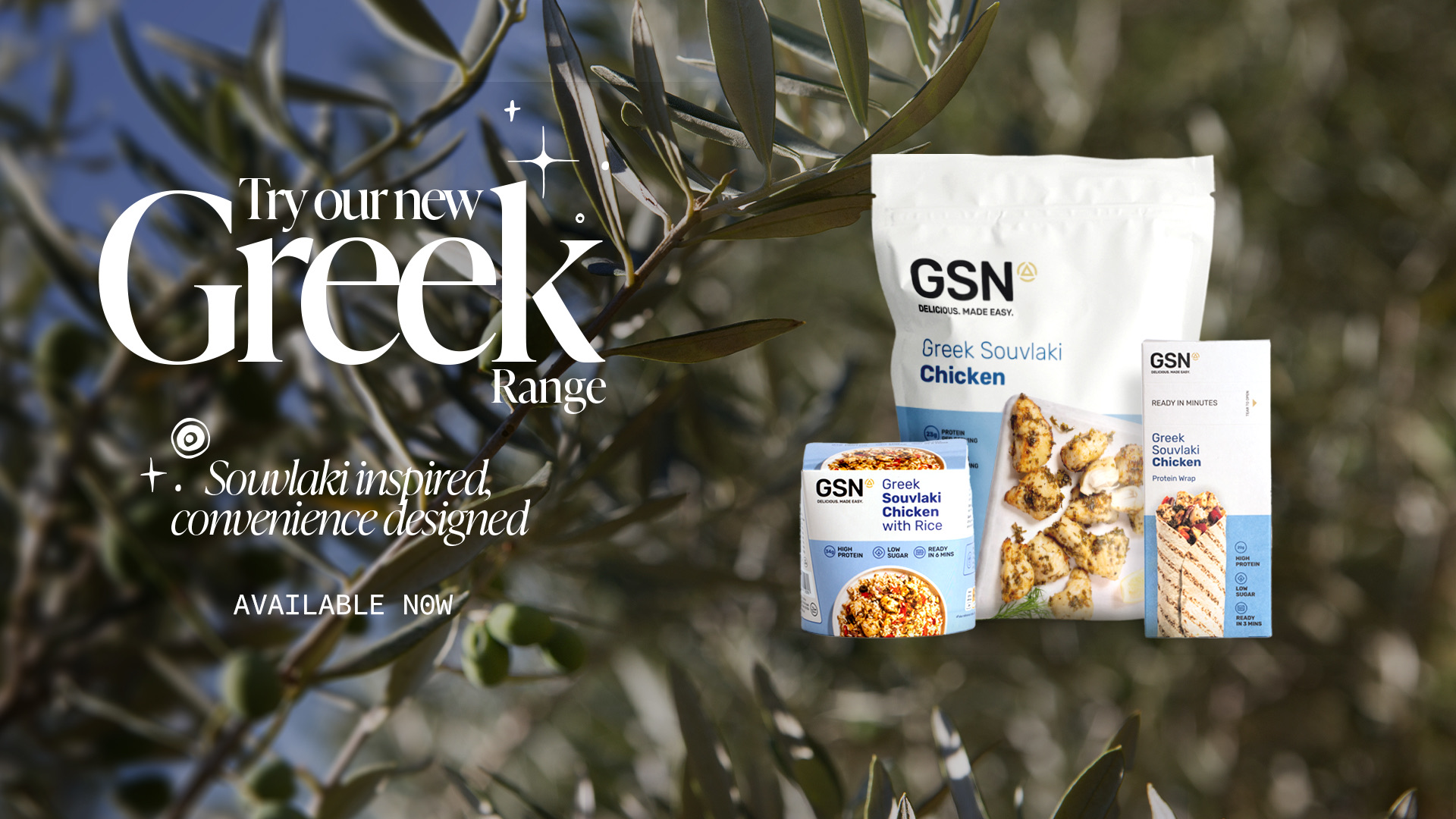Enhancing Gut Health and Immunity Through Nutrition
Read Time: 5 minutes
TL;DR (Just the gist…)
- The gut and immune system are closely linked through the gut-immune axis.
- A diverse gut microbiome enhances immune function and reduces inflammation.
- Prebiotics (fibre-rich foods) and probiotics (fermented foods) promote beneficial gut bacteria.
- Omega-3 fatty acids, polyphenols, and whole foods help maintain gut health and immunity.
- GSN’s high-protein, gut-friendly meals can complement a microbiome-supporting diet.

The Gut-Immune Axis: A Critical Connection
The human gut is home to trillions of microorganisms, collectively known as the gut microbiota. These microbes influence digestion, metabolism, and immune system regulation. The gut-immune axis describes the interaction between gut bacteria and immune function, demonstrating how gut health impacts overall immunity.
Over 70% of the body’s immune cells reside in the gut (Wiertsema et al., 2021), highlighting its crucial role in defending against infections and maintaining immune balance. The microbiota contributes to immune function by producing metabolites such as short-chain fatty acids (SCFAs), which strengthen the gut barrier and reduce inflammation (Tan et al., 2021).
Disruptions in gut microbiota, known as dysbiosis, are associated with autoimmune disorders, allergies, and chronic inflammation (Xu et al., 2019). This underscores the importance of nurturing a balanced microbiome.
Essential Nutrients for Gut Health & Immunity
1. Prebiotic Fibre: Fuel for Beneficial Bacteria
Prebiotics are non-digestible fibres that fuel beneficial gut bacteria. A prebiotics-rich diet supports a more diverse microbiome and improves immune function (Slavin, 2013).
Dietary fibre stimulates the production of SCFAs like butyrate, acetate, and propionate, which regulate immune responses and reduce systemic inflammation.
Best Prebiotic Foods:
- Oats, garlic, onions, leeks, bananas, asparagus, whole grains
- Legumes (lentils, chickpeas, black beans)
2. Probiotics: Live Bacteria for a Healthy Gut
Probiotics are live microorganisms that introduce beneficial bacteria into the gut. They help restore microbial balance, which can be disrupted by stress, poor diet, or antibiotics (Kober & Bowe, 2015).
Best Probiotic Foods:
- Yogurt, kefir, sauerkraut, kimchi, miso, tempeh
- Fermented drinks like kombucha
Probiotic-rich diets enhance immune response by increasing the production of anti-inflammatory cytokines and improving gut barrier integrity (Sivamaruthi et al., 2019).
3. Omega-3 Fatty Acids: Anti-Inflammatory Powerhouses
Omega-3 fatty acids modulate the gut microbiome and reduce inflammation, supporting gut and immune health (Calder, 2018).
Best Omega-3 Sources:
- Fatty fish (salmon, mackerel, sardines)
- Flaxseeds, walnuts, chia seeds
Impact of Poor Diet on Gut & Immune Health
A highly processed diet disrupts the microbiome and weakens immunity. Excessive sugar, refined carbs, and unhealthy fats contribute to gut dysbiosis, leading to chronic inflammation and autoimmune disorders (Singh et al., 2017).
Foods That Harm Gut Health:
- Ultra-processed foods – Chips, fast food, ready meals with artificial additives
- High-sugar foods – Sweets, sodas, pastries
- Excess alcohol – Disrupts gut microbiota balance
Conclusion
By adopting a nutrient-rich, microbiome-supporting diet, you can enhance both gut health and immunity. A diet rich in fibre, probiotics, omega-3s, and polyphenols helps maintain a strong gut barrier and balanced immune system.
Start making small, sustainable changes today, and fuel your body with high-protein, gut-friendly meals (like ours) for long-term health benefits.

Practical Strategies for Implementing Gut-Healthy Nutrition
1. Build a Gut-Friendly Meal Plan
Creating a balanced, gut-healthy meal plan ensures that you consistently consume prebiotics, probiotics, fibre, and immune-supporting nutrients.
Example Gut-Boosting Meals:
- Breakfast: Greek yoghurt with flaxseeds, berries, and walnuts (Probiotics, fibre, omega-3s, polyphenols).
- Lunch: Ready Cooked Chicken with quinoa and sauerkraut (High protein, prebiotics, probiotics).
- Snack: A handful of almonds and green tea (Healthy fats, polyphenols).
- Dinner: GSN Protein Wrap with grilled salmon and avocado (Omega-3s, fibre, lean protein).
- Evening: Kefir or chamomile tea (Probiotics, gut-soothing properties).
GSN Recommendation: Use Ready Cooked Chicken and Protein Wraps as the foundation for quick, gut-friendly meals that support digestion and immunity.
2. Adopt Mindful Eating Habits
- Eat slowly and chew food thoroughly to aid digestion and nutrient absorption.
- Stay hydrated—water is essential for digestion and helps fibre maintain gut health.
- Avoid overeating, as large portions can strain the digestive system.
- Limit late-night eating to support optimal microbiome balance.
3. Manage Stress for a Healthier Gut
Chronic stress disrupts gut microbiota and weakens the immune system. The gut-brain axis directly links mental well-being to digestive health.
- Exercise regularly—cardio and strength training promote gut health.
- Prioritise sleep—aim for 7-9 hours per night to support immune function.
- Practice mindfulness activities like meditation and deep breathing to reduce gut-related inflammation.
4. Reduce Gut Irritants in Your Diet
Some foods can disrupt gut balance, leading to inflammation, bloating, and weakened immune responses.
Foods to Limit:
- Ultra-processed foods—preservatives and artificial additives negatively impact gut health.
- Refined sugars—promote the growth of harmful bacteria.
- Excessive alcohol—disrupts gut microbiota balance.
Tip: Replace processed meals with our High-Protein Meals, which provide protein, fibre, and whole-food ingredients to support digestion.
5. Supplements to Support Gut and Immune Health
- Probiotic Supplements: Help restore gut balance, especially after antibiotics.
- Omega-3 Supplements: Reduce inflammation and support a diverse microbiome.
- Prebiotic Fibre Supplements: Improve digestion and feed beneficial gut bacteria.
Tip: Our Signature Meals (especially the Lamb Hot Pot and Ready-Cooked Chicken), combined with fibre-rich vegetables, contain sources of prebiotics and omega-3s.
6. Lifestyle Factors That Influence Gut and Immune Health
Regular Physical Activity
Exercise promotes microbiome diversity and supports immune function.
- Cardio (running, cycling, swimming) increases gut microbiome diversity.
- Strength training supports gut motility and metabolic health.
- Yoga and stretching reduce stress and improve digestion.
Prioritise Quality Sleep
Poor sleep disrupts gut bacteria, increasing inflammation and weakening immune responses.
- Set a consistent bedtime routine.
- Limit caffeine and screen exposure before bed.
- Avoid heavy meals right before sleep.
How Poor Sleep Disrupts Gut Health and Immunity
- Disrupts Gut Microbiome Balance (Dysbiosis): Poor sleep has been linked to imbalances in gut bacteria, reducing beneficial species like Lactobacillus and Bifidobacterium while increasing harmful bacteria. This state, known as dysbiosis, can impair digestion, weaken the gut barrier, and lead to inflammation (Nunez, 2025).
- Increases Gut Inflammation: Lack of sleep raises cortisol (stress hormone) levels, which promotes inflammation in the gut. Chronic inflammation can damage the intestinal lining and increase the risk of conditions like IBS (Irritable Bowel Syndrome) and leaky gut syndrome (Molumphy, 2024).
- Weakens Immune Defenses: Since 70% of immune cells reside in the gut, poor sleep disrupts immune regulation, reducing the production of anti-inflammatory cytokines and protective gut peptides. This makes the body more vulnerable to infections and slower at recovering from illness (Suni, 2023).
- Negatively Affects Gut Motility & Digestion: Inconsistent sleep cycles can disturb the gut’s natural rhythm, leading to slower digestion, bloating, and constipation. This happens because the gut and brain communicate through the gut-brain axis, which relies on sleep to function optimally (Donnelly, 2025).
How to Improve Sleep for Better Gut Health
- Maintain a regular sleep schedule – Aim for 7-9 hours per night.
- Avoid eating heavy meals close to bedtime – Late-night eating can disrupt digestion.
- Reduce caffeine and alcohol – Both negatively impact gut microbiota and sleep cycles.
- Increase prebiotic and probiotic foods – Helps regulate gut-brain signalling and improve sleep quality.
- Manage stress – High stress = poor sleep = poor gut health.
By prioritizing consistent, high-quality sleep, you can support a healthier gut microbiome, lower inflammation, and strengthen your immune system.
GSN Products That Support Gut & Immune Health
Our product range offers convenient, high-protein meals that support gut health and overall well-being:
- GSN Ready Cooked Chicken: Lean, clean protein for muscle repair and gut-friendly meals.
- GSN Protein Wraps: Wholegrain, high-fibre wraps to support gut bacteria.
- GSN High-Protein Meals: Balanced, prebiotic-rich meals that support digestion and immunity.
Final Thoughts: Strengthening Immunity Starts with the Gut
Implementing small, sustainable dietary and lifestyle changes can improve gut microbiome diversity, enhance digestion, and support long-term immune function.
Start today by choosing fibre-rich, probiotic-packed meals, incorporating regular exercise and stress management, and fuelling your body with high-protein, whole-food options like GSN meals.
Your gut is the foundation of health—nourish it well!












